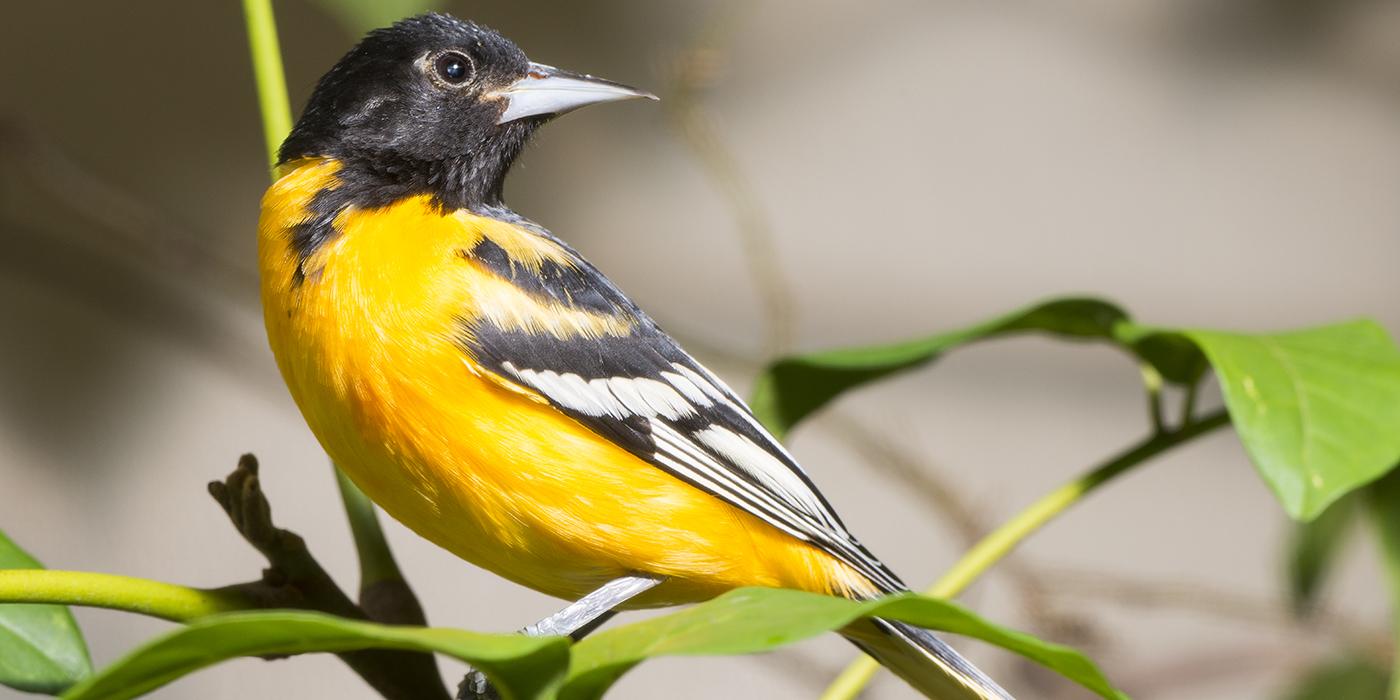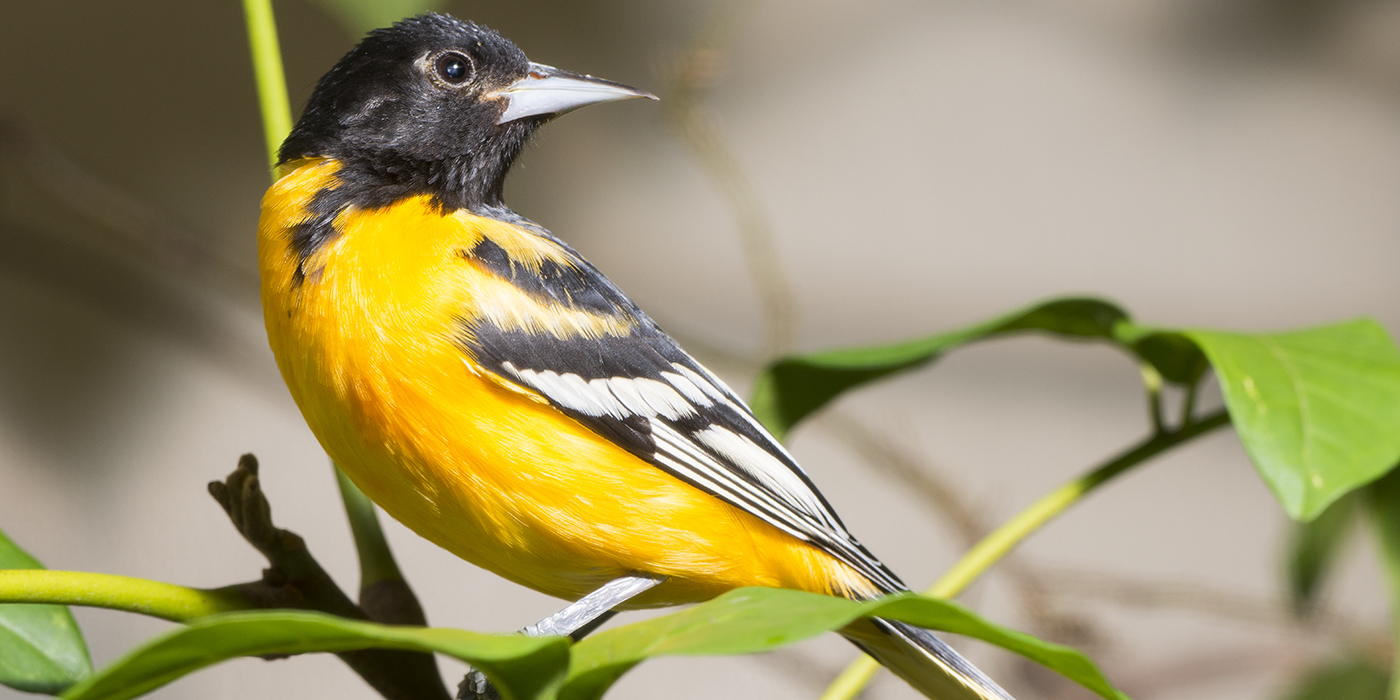World Migratory Bird Day Is May 9
Here’s How You Can Celebrate and Help Birds Right from Home

Migratory birds are now flooding across the continent as they return to their nesting grounds this spring. World Migratory Bird Day is on May 9, 2020, as people around the globe welcome birds back—and lend them a helping hand.
The number of birds coming back each year is decreasing as birds face mounting challenges across their journeys. The U.S. and Canada have lost nearly three billion birds since 1970, according to a study in Science last year.
There are many things you can do right from home to protect, celebrate, and enjoy birds. Here are some bird-friendly actions you can take on World Migratory Bird Day, and every day—to help bring birds back.
- Celebrate World Migratory Bird Day—Right at Home. Check out online events, storytelling for kids and find out how scientists learn where birds go. Visit the World Migratory Bird Day website.
- Make a Bird-Friendly Place in Your Yard or Neighborhood. Provide shelter, nesting areas, and food for birds. You’ll be amazed by the birds and other wildlife you can attract with a few simple steps. Learn about native plants and about creating a bird friendly home and yard.
- Watch Birds Near Home and Share What You See. On May 9, participate in Global Big Day, and help set a record of 100,000 bird checklists submitted to eBird.org for use in science and conservation! Look out for the birds around your home, identify as many as you can, and share your list. Need help getting started? Download the free Merlin Bird ID app from the Cornell Lab of Ornithology or take the free eBird Essentials course.
- DIY Project: Make Your Windows Safer. Up to 1 billion birds are estimated to die each year after hitting windows in the United States and Canada. Get the kids involved in a simple home improvement project to save birds by breaking up window reflections using string, decals, or paint spaced no more than two inches high or two inches wide.
- Enjoy Indoor Time with Your Cat. While outdoors, cats are estimated to kill more than 2.6 billion birds annually in the U.S. and Canada. Keeping your cat safe with quality time indoors also helps protect birds and other wildlife. See these six ways to keep your indoor cats happy.
- Have a Bird-Friendly Drink. Most coffee is grown in the sun, but shade-grown coffee preserves a forest canopy that helps migratory birds survive the winter, offers food and shelter for wildlife, and is economically and environmentally beneficial to farmers. Find out where to order Bird Friendly® coffee, certified by the Smithsonian Migratory Bird Center.
- Skip the Pesticides. More than a billion pounds of pesticides are applied in the U.S. each year. Avoiding pesticides around your home and in your food is a healthy choice for wildlife and your family.
- Reduce and Reuse Your Plastics. It’s estimated that 4,900 million metric tons of plastic trash have accumulated worldwide. Plastic waste is so pervasive that microplastics can be found in drinking water, and trash in the ocean entangles birds or is mistaken for food. Try these eight ways to reduce your plastic waste.
Take one or more of these actions for birds on World Migratory Bird Day—Saturday, May 9, and keep it up. Watching birds is a relaxing and uplifting activity, and helping them out will ensure they will keep returning for years to come.
Organizations Behind the Release:
American Bird Conservancy (ABC) is a nonprofit organization dedicated to conserving birds and their habitats throughout the Americas. With an emphasis on achieving results and working in partnership, we take on the greatest problems facing birds today, innovating and building on rapid advancements in science to halt extinctions, protect habitats, eliminate threats, and build capacity for bird conservation.
Smithsonian’s National Zoo & Conservation Biology Institute—The Smithsonian Migratory Bird Center (SMBC) is dedicated to understanding, conserving, and championing the grand phenomenon of bird migration. Founded in 1991, and part of the Smithsonian Conservation Biology Institute (SCBI), SMBC scientists work to conserve migratory species through research and public education that foster a better understanding of migratory birds and the need to protect diverse habitats across the Western Hemisphere. SCBI plays a leading role in the Smithsonian’s global efforts to save wildlife species from extinction and train future generations of conservationists, spearhead research programs at its headquarters in Front Royal, Virginia, the Smithsonian’s National Zoo in Washington, D.C., and at field research stations and training sites worldwide.
Bird Conservancy of the Rockies (Bird Conservancy) is a Colorado-headquartered nonprofit that works to conserve birds and their habitats through an integrated approach of science, education, and land stewardship. Our work extends from the Rockies to the Great Plains, Mexico, and beyond. Together, we are improving native bird populations, the land, and the lives of people. Bird Conservancy’s vision is a future where birds are forever abundant, contributing to healthy landscapes and inspiring human curiosity and love of nature.
The Cornell Lab of Ornithology is a membership institution dedicated to interpreting and conserving the earth’s biological diversity through research, education, and citizen science focused on birds.
Environment for the Americas is a Colorado-based nonprofit organization that provides bilingual educational materials and information about birds and bird conservation to raise awareness of migratory birds and to promote actions that protect migratory birds throughout the Americas.


